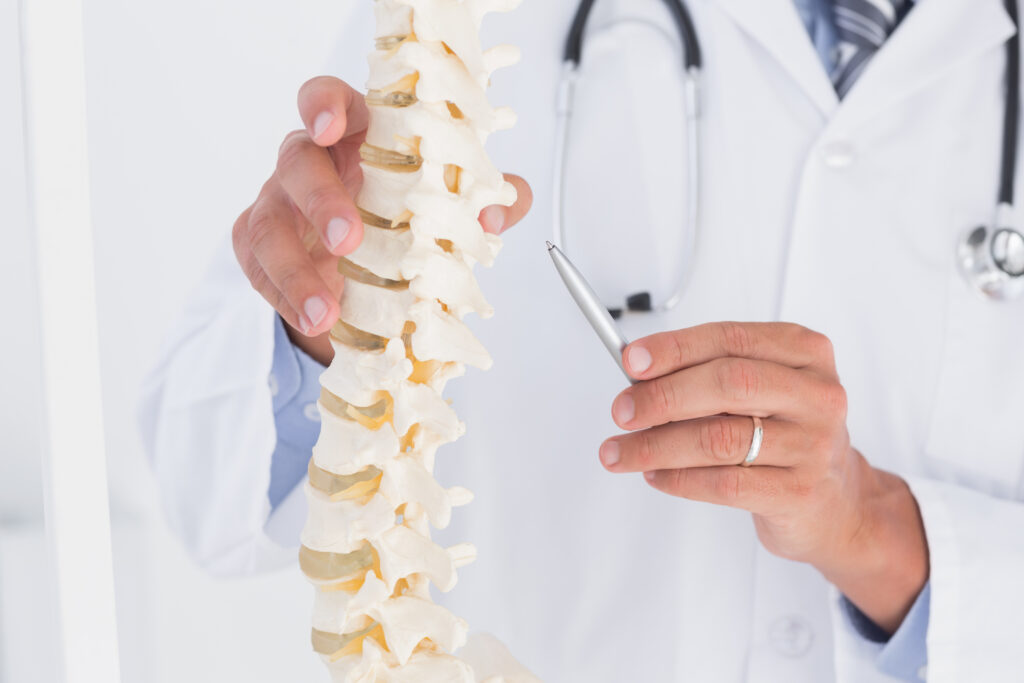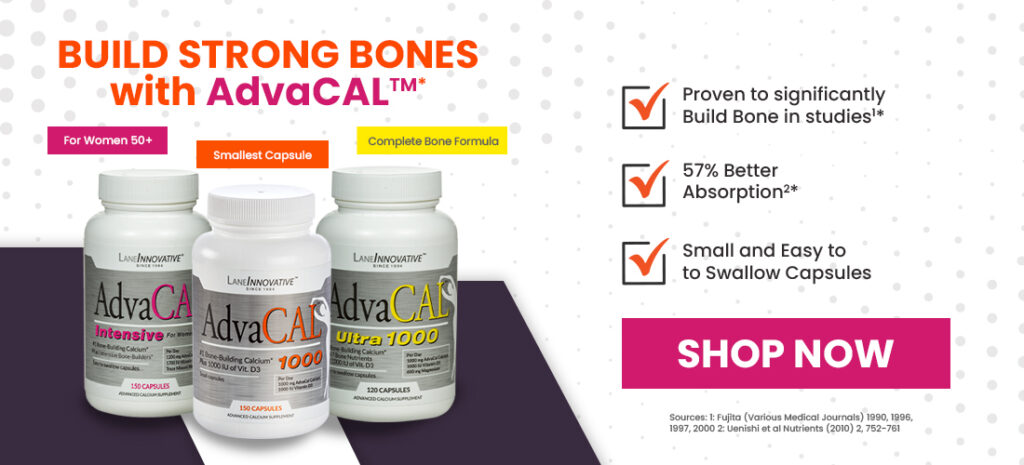Bone Health
How Calcium and Vitamin D Work Together to Protect Your Bones
When it comes to your overall health and wellness, protecting your bones is extremely important. Poor bone health can lead to bone density loss which can then lead to a number of health problems down the road. Bone density loss can also cause weakness, pain, and brittle bones that impede your quality of life. For that reason, it’s extremely important to protect and reinforce your bones.
While living a healthy life and avoiding danger is a good way to protect your bones, it’s equally important to consume the right vitamins and minerals. In terms of vitamins and minerals for bone protection, calcium and Vitamin D are at the top of the list. While both nutrients provide benefits on their own, they’re much better when you combine them so they can work together.
This article will dive deeper into why calcium and Vitamin D are so important for bone health and protection, as well as how they work together. We’ll also discuss how to ensure you have enough calcium and Vitamin D in your system and what might happen if you don’t.

The Role of Calcium
Calcium is useful for many different things in the body, but protecting and strengthening bones is at the top of the list. Bone loss is a natural part of the aging process, but calcium can help reduce it and slow it down. Calcium also helps your body create new bone material and speeds up the bone-healing process after a break or fracture. Finally, calcium solidifies the collagen around your bones to make them stronger and healthier.
How to Get Plenty of Calcium
Your body doesn’t create calcium on its own. Therefore, the only way to get calcium into your system is through supplements or your diet. Here are some of the best food and drink sources of calcium.
- Milk
- Cheese
- Yogurt
- Tofu
- Certain juices and cereals that have been fortified with calcium
- Salmon
- Sardines
- Cottage cheese
- Orange juice
- Dark, leafy greens such as spinach, kale, chard, and collard greens
Recommended Calcium Dosage
The recommended dosage of calcium depends on your age, gender, size, and body type. In general, women are more prone to bone density loss than men and should consume more calcium. Additionally, the bigger you are, the more calcium you’ll need to develop strong bones. On average, adults should consume between 1,000 and 1,200 milligrams of calcium per day.
The Role of Vitamin D
If calcium is Batman in terms of bone health and protection, Vitamin D is certainly Robin. You see, you can put as much calcium into your system as you like, but your body can only absorb so much of it. Let’s say, for example, that you consume the recommended dose of 1,000 milligrams of calcium per day. However, your body might only be able to use 500 of those milligrams, and the rest exits the body.
Vitamin D helps you maximize the amount of calcium that your body can absorb. By having enough Vitamin D in your system, your body can use all 1,000 of those milligrams, thereby making your bones as strong and healthy as possible.
How to Get Plenty of Vitamin D
As with calcium, the body doesn’t create Vitamin D naturally. Therefore, the only way to get Vitamin D into your system is through external measures. While your diet will play a big role in how much Vitamin D you consume, you can also get it by soaking up the sun. In addition to sunlight, here are some other good sources of vitamin D.
- Certain juices and cereals that have been fortified with Vitamin D
- Milk
- Yogurt
- Cheese
- Egg yolks
- Certain fish that are high in fat content
- Beef liver
- Certain mushrooms and fungi
Recommended Vitamin D Dosage
As with calcium, the recommended dosage of Vitamin D per day will depend on your age, gender, size, and body type. In general, however, people should get an average of 1,000 IUs of Vitamin D per day for bone protection and other functions.
Final Thoughts About Calcium and Vitamin D for Bone Health
As you can see, calcium and Vitamin D are extremely important for protecting and maintaining your bones. The two work together to make your bones stronger and healthier and help prevent bone density loss and resulting health problems.
The best way to ensure you have enough calcium and Vitamin D in your system is by eating and consuming certain foods and drinks. If you’re struggling to get enough calcium and Vitamin D with this method, you also have the option of taking a supplement.
References:
Two keys to strong bones: Calcium and Vitamin D – Harvard Health
The Role of Calcium and Vitamin D in Bone Health (endocrineweb.com)
Calcium and Vitamin D: Important at Every Age | NIH Osteoporosis and Related Bone Diseases National Resource Center
How Vitamin D and Calcium Work Together For Strong Bones | H-Wave
Like? Share with your friends
Learn More Information on AdvaCAL, the #1 Bone-Building Calcium*

